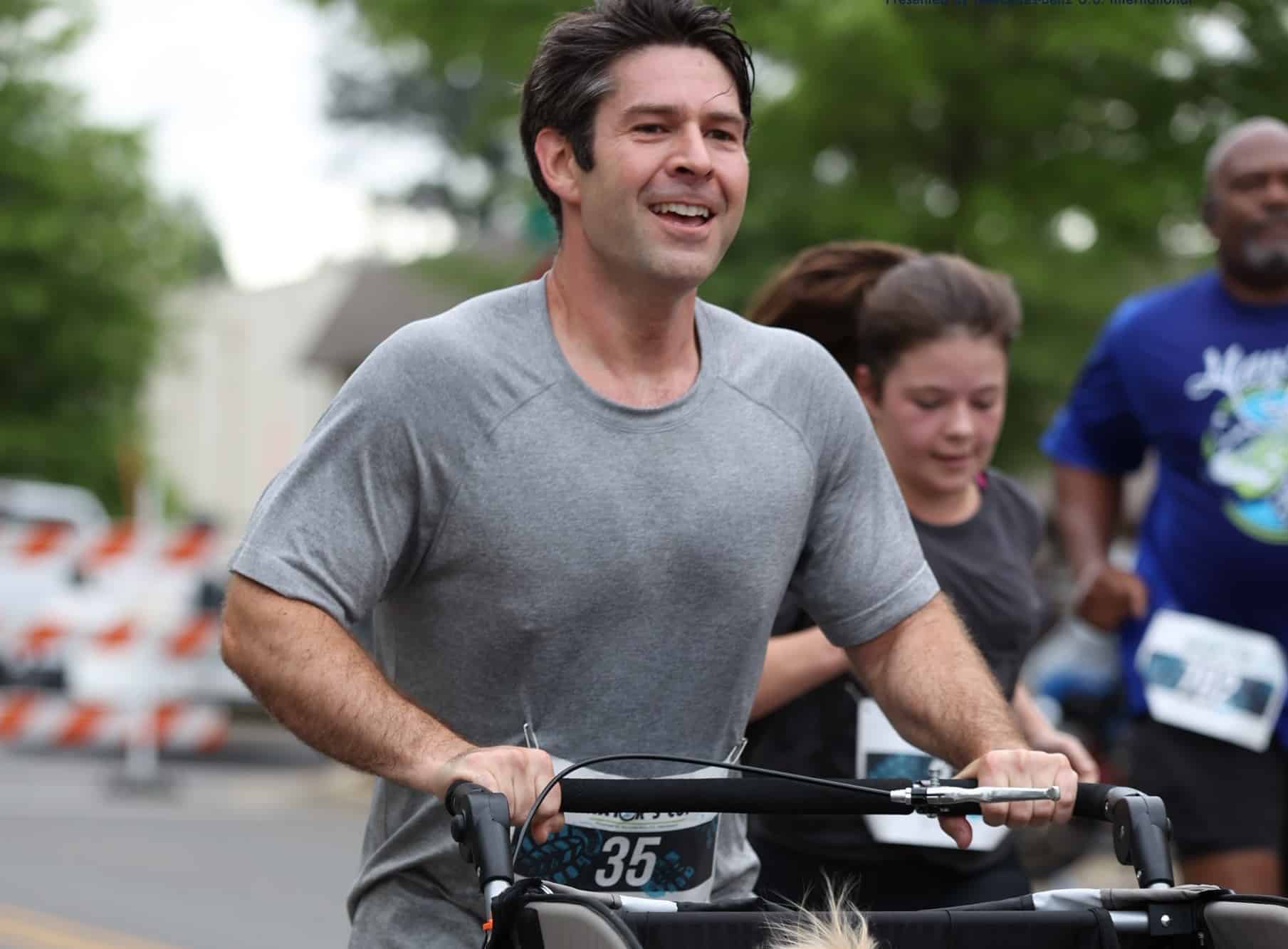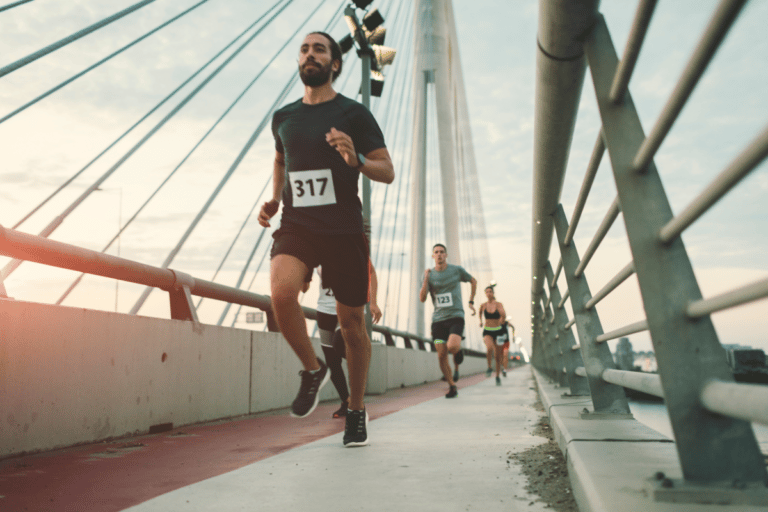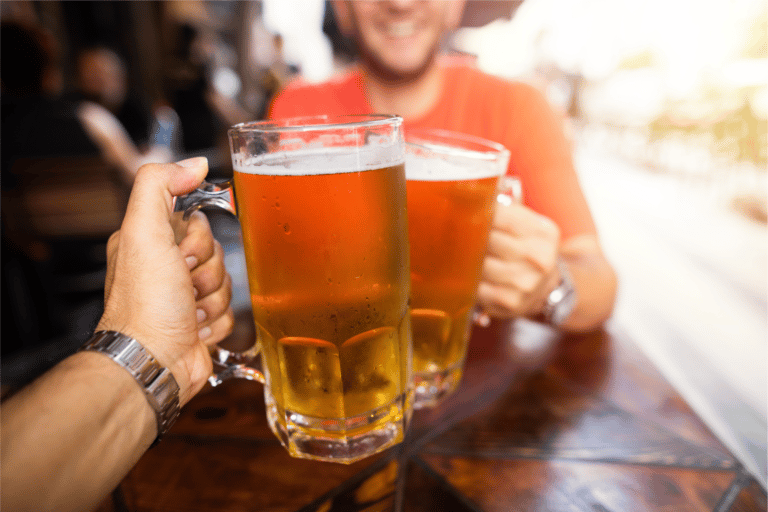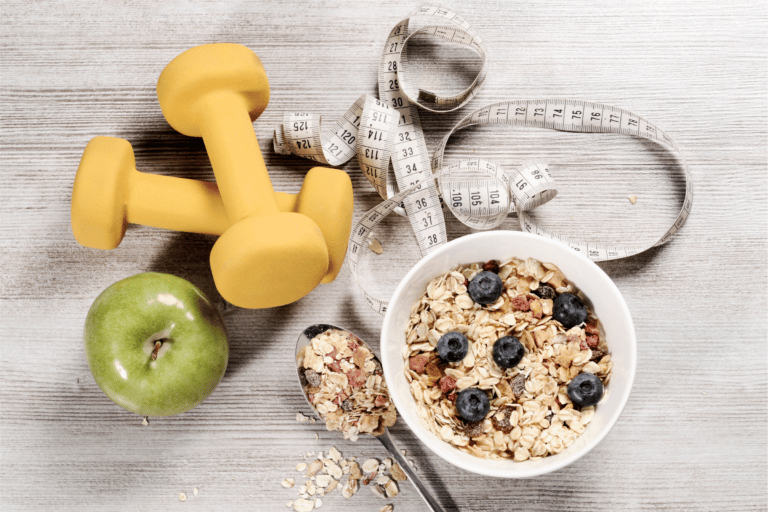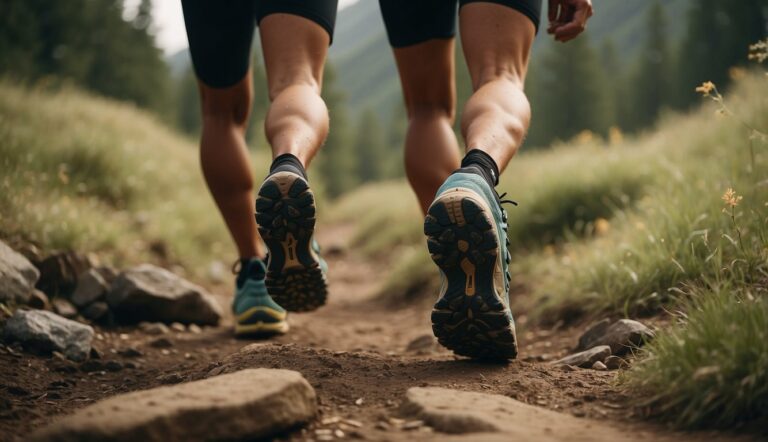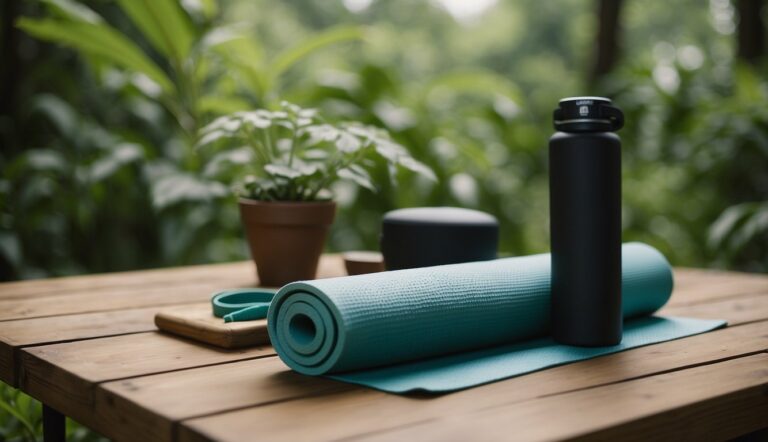15 Foods That Prevent Cramps While Running (Including Some Surprises!)
Cramps plague runners all around the globe from dehydration, electrolyte imbalance, and the like. Luckily, cramps can be strategically prevented through a fun avenue: food! What are the best foods that prevent cramps while running?
Foods that are high in water content, loaded with electrolytes, and high in muscle-building hormones will help prevent cramps. Overtraining or electrolyte imbalances from dehydration most commonly cause cramps; eating foods that counteract these problems stops cramping. Bananas, pickles, eggs, and more are great for preventing cramps.
Read on to learn what causes muscle cramps when running, how long you should wait to run after eating, and what to eat before running in the morning, noon, or night!
What causes muscle cramping during a run?
During a run, the last thing we need is additional pain on top of our tiresome efforts. Muscle cramps commonly occur and they are anything but pleasant.
That said, how exactly do muscle cramps happen? What causes muscle cramps when running?
Muscle cramps are caused by either overuse of a certain muscle when running or by electrolyte imbalances stemming primarily from dehydration. Runners can avoid muscle cramps by practicing proper recovery techniques and by staying hydrated around the clock.
Muscle cramps result from overtraining or dehydration, although often the two are coupled together to make cramping even worse.
On the overtraining end, pushing too hard leads to losing control of your muscles. A study performed in 2011 found that Ironman triathletes who had faster race times and higher RPE (rate of perceived exertion) were more likely to develop muscle cramps.
In short, high-intensity running can lead to overworked muscles and subsequent loss of control.
The other commonly cited source of muscle cramping is dehydration and electrolyte imbalances.
While overtraining and intensity cannot be treated with food, dehydration and maintaining a balanced electrolyte profile certainly can!
Can certain foods help prevent cramps while running?
Wouldn’t it be wonderful if there was some magical, life-altering cure to prevent cramps when running?
It just so happens that there is!
Certain foods can prevent cramps while running. These foods typically have either a high water content to prevent dehydration or a complex electrolyte profile to help prevent electrolyte imbalance in runners.
Looking decades, even many centuries, into the past, food has always been seen as a potential cure. In Eastern parts of the world, holistic health is huge! Part of this is the food you consume.
Runners can take a page out of this holistic handbook and choose certain foods to ensure they feel great when running.
Two criteria determine whether or not a food is good for preventing cramping:
- Foods with high water content can help prevent cramps when running. Consuming high-water-content foods combat the constant threat of dehydration.
- Foods that are high in electrolytes are great for keeping electrolyte levels balanced in runners, subsequently avoiding cramping.
How long should you wait to run after eating?
Waiting to run after eating is great for preventing stomach cramps. These are different from muscle cramps but must be acknowledged nonetheless; they are super uncomfortable!
Runners should wait 30 minutes to run after eating a snack. If running after a whole meal, a minimum of 2 hours is recommended. Some runners may have sensitive stomachs and in their case, up to 4 hours may be necessary to avoid extreme discomfort during their runs.
Runners such as myself have to be very methodical about how eating and running interact. Having a sensitive stomach is no joke.
According to the Cleveland Clinic, it can take up to four hours for food to leave your stomach! The primary determinator is the nutritional contents of what you eat.
Snacks that are small and made of simple carbohydrates only take around 30 minutes to digest and leave your stomach, so runners can hit the road or trails pretty quickly!
However, food with higher contents of fat or protein take exponentially longer to digest. These foods average around 2 to 4 hours to completely exit the stomach.
Wondering why running after eating causes stomach cramps? Find the answer in this article!
Keep in mind that every runner is unique and these are general guidelines based on research. Your body type, metabolism, and past medical history may prompt waiting shorter or longer than the recommended guidelines.
The best foods that prevent cramps while running
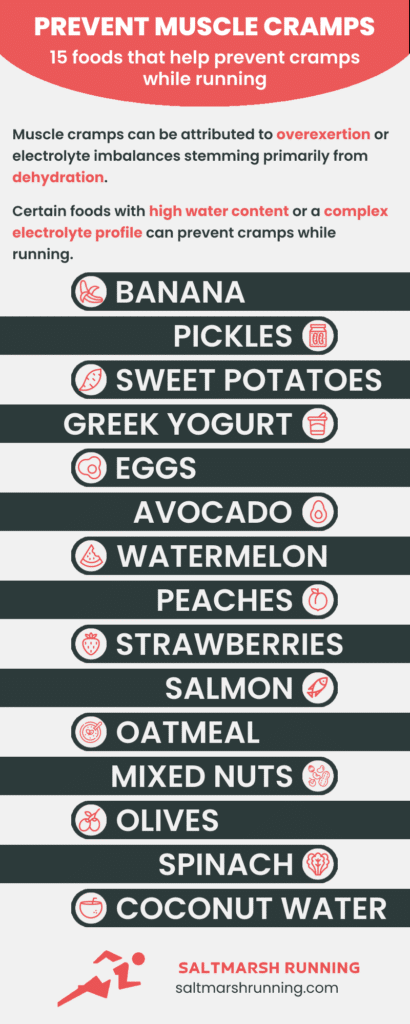
Based on the criteria of being either high in water content or chock-full of electrolytes – or both! – we’ve compiled the best foods to prevent cramps.
The top fifteen foods to eat that will help prevent muscle cramps while running are:
- Banana
- Pickles
- Sweet Potatoes
- Greek yogurt
- Eggs
- Avocado
- Watermelon
- Peaches
- Strawberries
- Salmon
- Oatmeal
- Mixed nuts
- Olives
- Spinach
- Coconut water
Banana
Fun fact: Americans eat about 27 pounds of bananas every year!
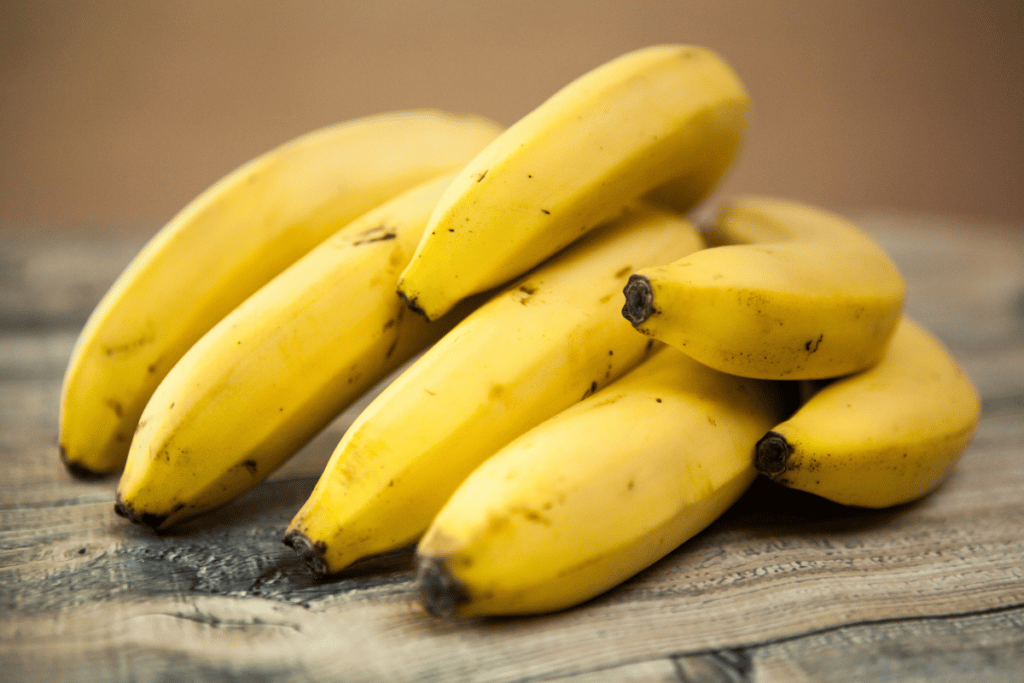
Runners should definitely be contributing to this number; bananas are a great fruit for runners to avoid cramping and improve performance.
Why it’s great for runners
Bananas are great for runners for various reasons.
Bananas contain high levels of potassium and are made up of simple sugars that are easily digestible for quick energy.
In terms of preventing cramping, bananas are great because they help runners replenish electrolyte stores. More specifically, bananas give runners loads of potassium.
Potassium is needed to regulate muscle contractions; without sufficient potassium levels, cramping is bound to occur.
In addition to preventing cramping, bananas provide quick energy through simple sugar carbs. To learn more, read our article on why runners should eat bananas!
How to prepare it
One of the best parts about bananas is that they are super convenient.
Runners can take bananas on the go and eat them right before running if they desire.
Bananas are great-tasting on their own, but if you desire a little extra substance, try pairing peanut butter with bananas. The combo is great, both for your taste buds and your running performance.
Pickles
I feel like people either love or hate pickles; there’s really no in-between.
If you can find a pickle you like, the vinegar and sodium can help prevent cramps and keep your electrolytes in check.
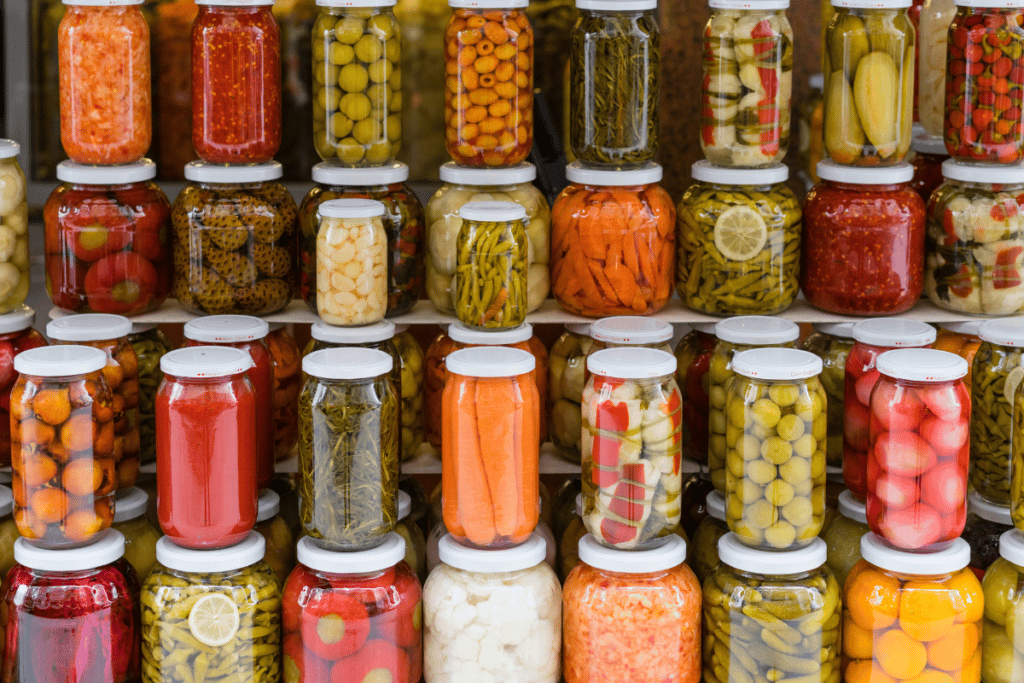
As a runner, it is a disservice to yourself to simply write pickles off as excessive and disgusting. Pickles actually have great benefits for runners (and honestly, I think they’re pretty tasty too)!
Why it’s great for runners
Although it sounds a little strange, runners of all ages and skill levels turn to pickle juice to avoid cramps and aid recovery. How does this work?
Pickles are great for runners because of their vinegar and sodium content. The vinegar used in the pickling process inhibits muscles from contracting, effectively preventing cramps. The high sodium content also helps runners to keep their electrolyte levels in check.
A study performed in 2010 found that consuming pickle juice relieves cramps within an astonishing 35 seconds of consumption. That’s lightning quick!
The reason for this relief is the vinegar content in pickles. By consuming vinegar, runners reduce motor neuron activity. In layman’s terms, the brain sends fewer signals to the muscle to contract.
Pickles are also chocked full of sodium. When we run, we sweat out lots of salt; eating pickles helps runners consume enough sodium to make up the difference.
How to prepare it
As mentioned before, one way to get your pickle fix is by drinking pickle juice. However, for some runners, this is a bit extreme.
I like baby dill pickles on their own, but if you need to eat pickles with something else, sandwiches are the way to go. Just make sure to keep them simple to avoid any digestive issues!
Sweet potatoes
Decades ago, Almanac declared sweet potatoes the healthiest vegetable on the planet. Quite the award, am I right?
I can happily announce that sweet potatoes are still wholly nutritional and runners can reap great benefits by consuming them!
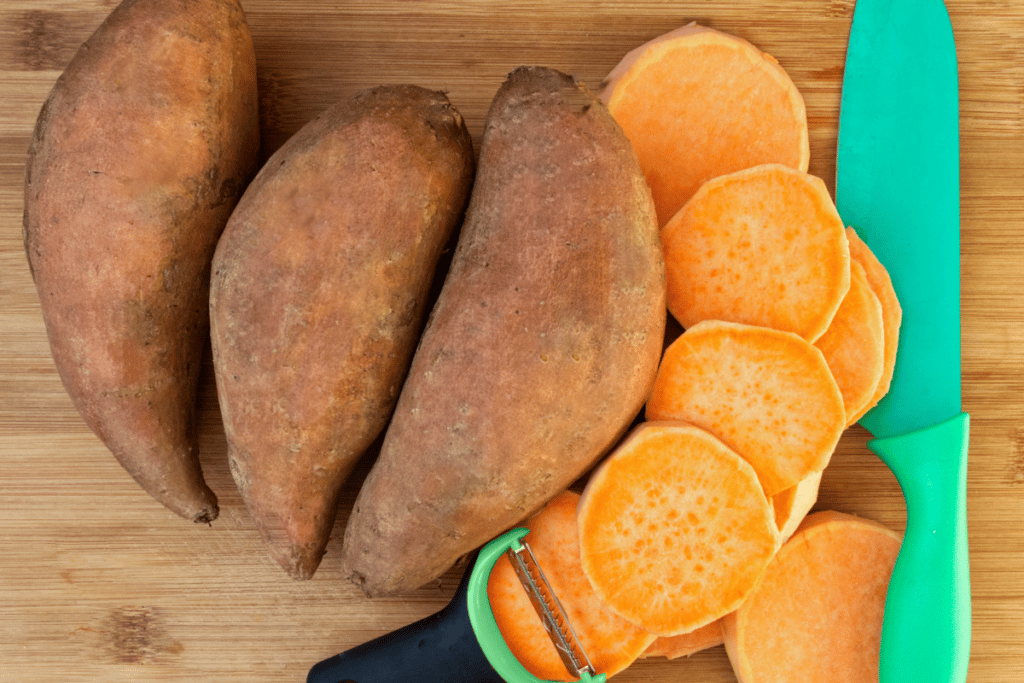
Why it’s great for runners
Sweet potatoes are certainly underappreciated; they hold more benefits than regular potatoes and, honestly, I think they taste delicious.
Sweet potatoes are great for runners because of their holistic nutritional content. Sweet potatoes provide ample amounts of vitamin A, beta-carotene, vitamin C, and manganese. They also make an amazing carbohydrate source.
Sweet potatoes have a well-rounded portfolio of vitamins and minerals. Knowing that cramps often stem from imbalances of electrolytes, eating foods bolstered with many different electrolytes is great for cramp prevention!
This superfood also promises long-lasting energy to runners who consume it. Sweet potatoes provide complex carbohydrates; when coupled with manganese (a mineral that helps regulate blood sugar), runners can rest assured they’ll be energized for the foreseeable future.
How to prepare it
Sweet potatoes can be prepared in numerous ways, all equally tasty!
Just like regular potatoes, sweet potatoes can be oven-roasted with some olive oil. Instead of salt and pepper, pair it with a spice such as cinnamon for a sweeter finish.
Sweet potatoes can also be baked or mashed. There’s really no shortage of options.
Greek yogurt
Did you know Greek yogurt is alive?
Greek yogurt is packed with amazing probiotics that foster a healthy gut ecosystem for easy digestion!
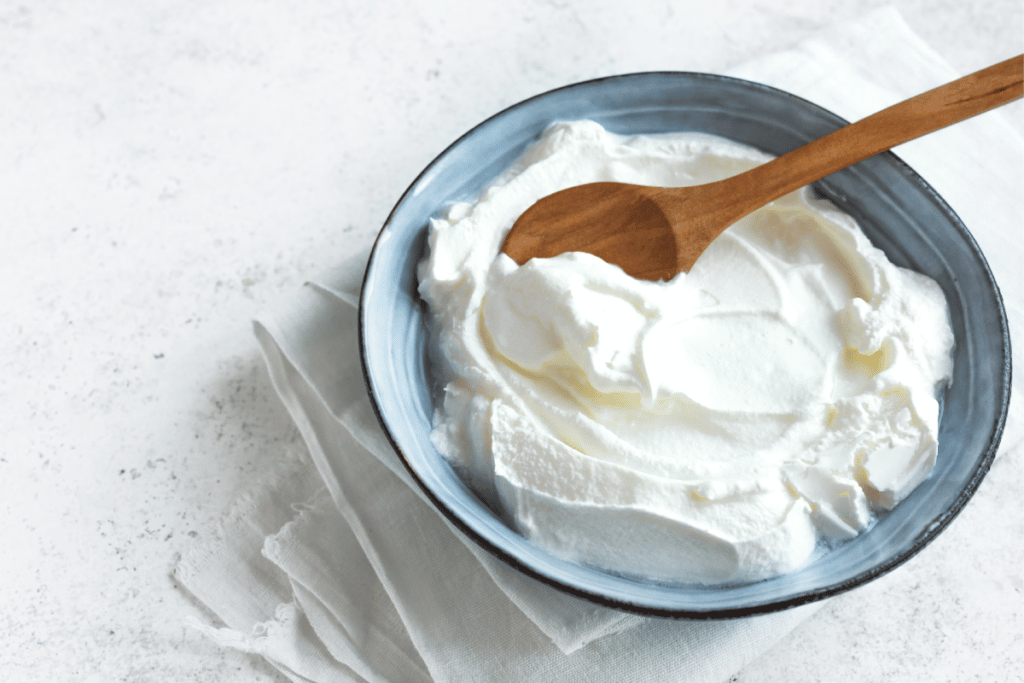
Outside of its digestive benefits, Greek yogurt can actually help runners avoid cramping as well.
Why it’s great for runners
Greek yogurt ought to be considered a superfood. It has so many wonderful benefits for runners!
Greek yogurt is great for runners because it has high levels of calcium, potassium, and phosphorus. As an added bonus, Greek yogurt is high in protein, a macronutrient needed for proper recovery.
Advertisers typically put Greek yogurt in the spotlight because it carries lots of probiotics that facilitate great gut health. What they neglect to mention are its anti-cramping properties.
A study performed in 2022 found that calcium and potassium deficiencies are common culprits of muscle cramps. Guess what Greek yogurt has plenty of? Calcium and potassium.
Additionally, Greek yogurt has a high protein content. This is beneficial to runners because we need adequate amounts of protein for muscle synthesis to occur and properly recover.
How to prepare it
Greek yogurt can be eaten on its own, although the taste may be a bit bitter for some.
A great way to prepare Greek yogurt that is healthy and great-tasting is with berries and granola. Simply take whatever fresh berries you have on hand and some granola, then mix it all together.
If you prefer things a bit sweeter, add some honey while you’re at it!
Eggs
Eggs are a staple in American breakfast, and for good reason!
They can be cooked in a variety of ways and they have a great nutritional profile with lots of healthy fats and protein, some of which aid in recovery and avoiding cramps.
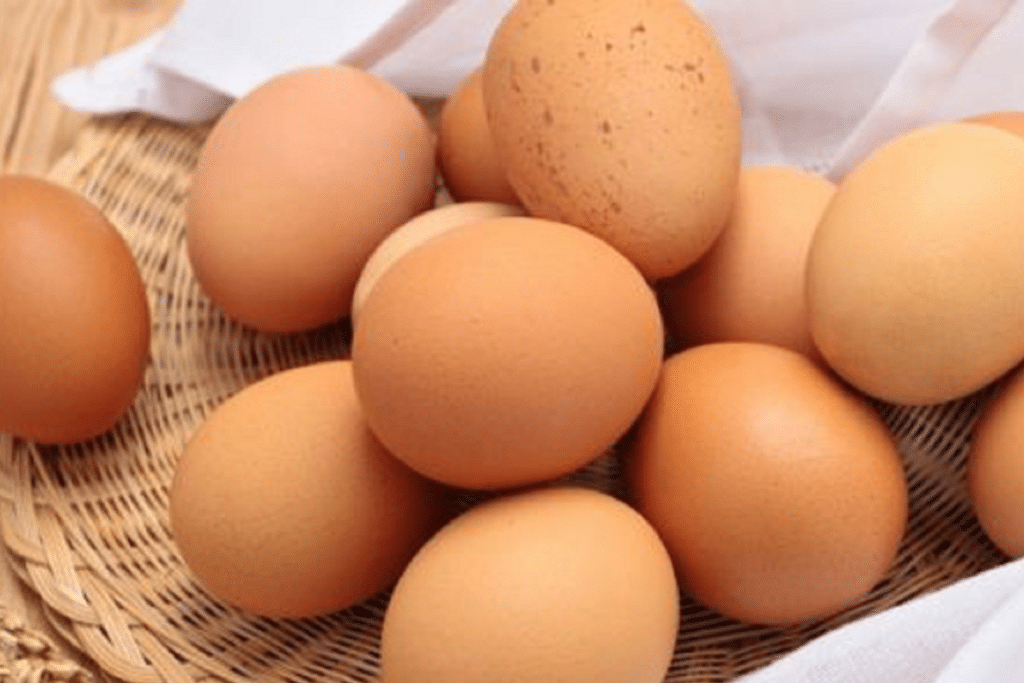
In fact, the US consumes an average of 76.5 billion eggs per year. That’s a whole lot of eggs.
Why it’s great for runners
Aside from their traditionally touted benefits of fat and protein, eggs can be extra beneficial to runners.
Eggs are great for runners because they have essential amino acids and antioxidants for rebuilding; this is a crucial part of recovery and avoiding cramps. However, be sure to eat whole eggs, not just egg whites to receive all these benefits!
It’s important that runners do not cut out the yolk when eating eggs. It can be tempting to do so if you’re counting calories but trust me, the yolk is where all the good stuff is at.
A study in 2014 found that whole eggs are a great source of antioxidants, more so than egg whites. The antioxidants in eggs are crucial for recovery.
Keep in mind that many muscle cramps are related to overtraining or excessive overuse; eggs help recovery, therefore avoiding overtraining in the first place.
How to prepare it
Eggs can be prepared in a variety of ways. I like some good old scrambled eggs, but others may prefer omelets and hard-boiled eggs.
Fried eggs are extra tasty, but exercise caution if frying eggs before running. The excess fat may leave you feeling sluggish.
Avocado
Did you know avocados actually hold double the amount of potassium as bananas? This makes them a great resource for runners to avoid cramping!
Why it’s great for runners
Not only are avocados tasty, but they’re super good for you. Runners can certainly incorporate avocados into their diets and see great results.
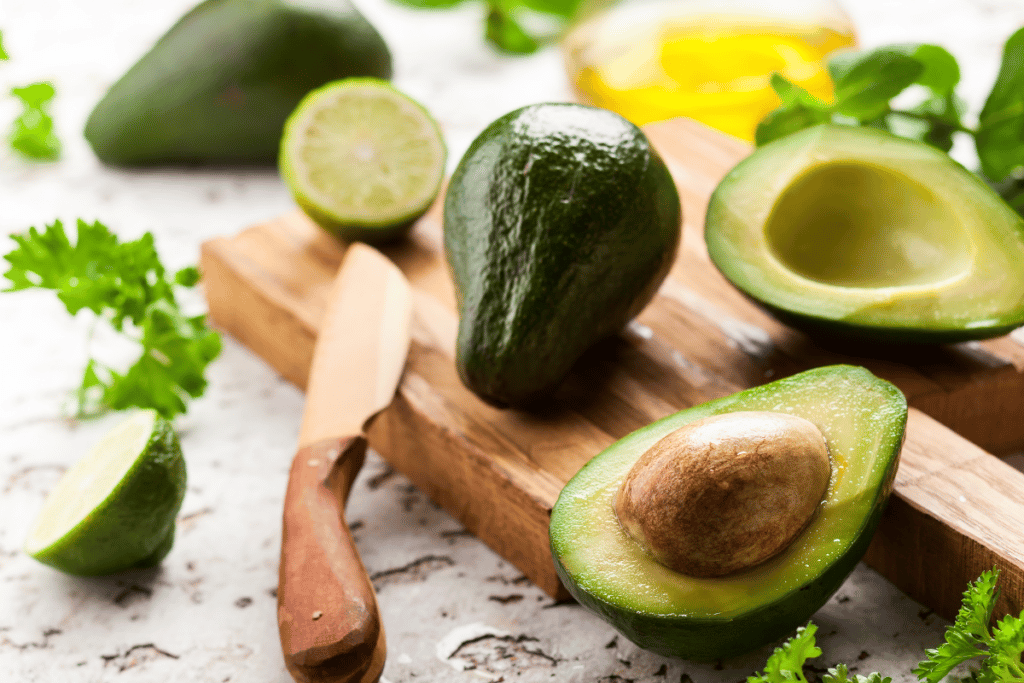
Avocados are great for runners because they provide lots of potassium and are made up of healthy unsaturated fat.
As we have previously stated, potassium is a major electrolyte that must be balanced to avoid cramping when running.
Fruits like bananas and vegetables like sweet potatoes are great for replenishing potassium stores, but they pale in comparison to avocados.
Avocados have double the amount of potassium as these other delicious foods and are arguably the most versatile to incorporate into your diet as well. Win-win!
Another bonus is that the majority of calories in avocados come from unsaturated fats. These fats are essential for regulating cholesterol, lowering heart disease risk, fighting premature death, etc!
How to prepare it
I’m sure you’ve seen avocado toast; it’s super popular right now. As popular as it is, it’s still an amazing way to eat and enjoy avocado.
Pair avocado with multigrain bread for a healthy avocado toast breakfast or snack.
Aside from avocado toast, cooking with avocado oil is an excellent way to consume avocados without actually eating the fruit!
Watermelon
What better snack on a hot summer day than watermelon? It’s juicy, refreshing, and so easy to prepare.
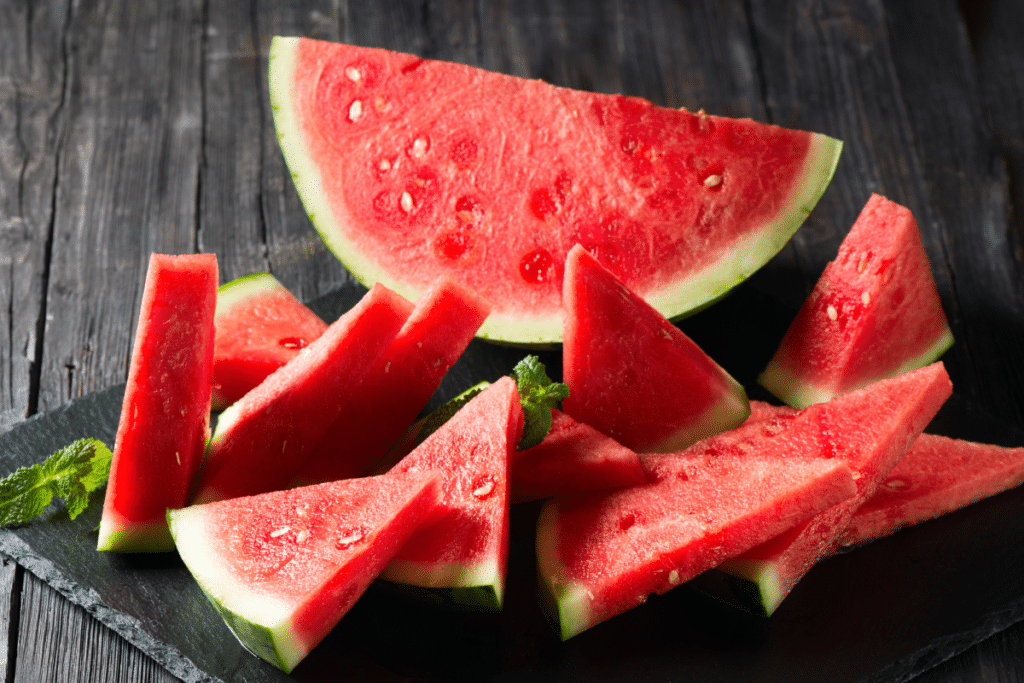
Whether it’s at a picnic or after a run, runners should consider grabbing themselves an extra slice or two; the benefits of watermelon are astonishing!
Why it’s great for runners
A big portion of muscle cramps comes from dehydration. Watermelon is perfect for offsetting this issue.
Watermelon is great for runners because of its high water content. By eating watermelon, runners are more likely to be adequately hydrated on their runs. Additionally, watermelon is packed full of flavor and good nutrients.
Watermelon has a sky-high 92% water content! That is among the best of any food in the world.
Dehydration is a major issue for runners because they fall behind the ball. They wait to drink water until right before or during their runs and suffer consequently.
Eating watermelon helps runners get hydrated before running, an important consideration for avoiding cramps caused by dehydration.
Watermelon also has many great nutrients include beta-carotene, lycopene, vitamin C, vitamin A, and more.
How to prepare it
Watermelon is best enjoyed on its own!
It’s easy to prepare: simply cut your watermelon into slices and dig in.
Peaches
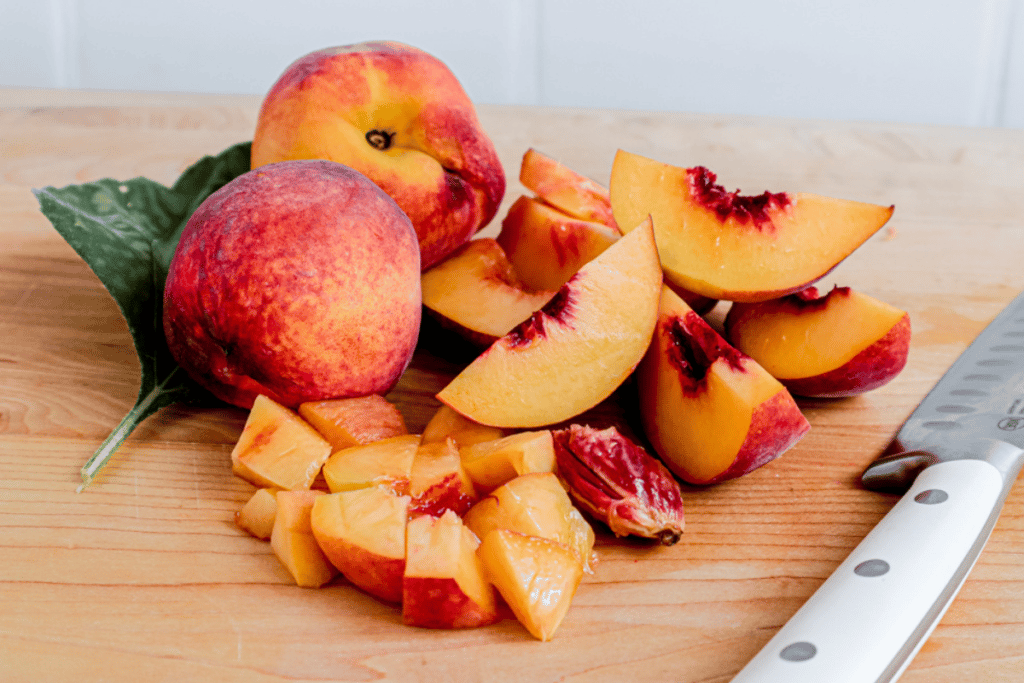
Did you know peaches are the “Fruit of Calmness?” That’s right; they have a reputation for reducing anxiety!
If you’re intrigued, I can think of a million other reasons why you should eat more peaches. They have many amazing benefits for runners.
Why it’s great for runners
A major complication that leads to muscle cramping when running is dehydration. Peaches can help with that.
Peaches are great for runners because they have a high water content that helps runners stay hydrated. Peaches also have many nutrients that are known to reduce cancer and improve heart health.
Peaches have an 88% water content, not far behind that of watermelon. By eating peaches, runners can stay ahead of the curve and ensure they are sufficiently hydrated before going to run.
As a bonus, peaches have been shown to reduce cancer and improve heart health! In today’s world when cancer and cardiovascular disease riddles millions of individuals, this benefit could not be more welcomed.
Peaches reduce cancer because they contain carotenoids and caffeic acid. These antioxidants have anticancer properties!
How to prepare it
Peaches are great on their own, although they can definitely be added to a tropical-style smoothie!
The real question is whether to skin the peach or not.
The peach peel is actually what holds all the important nutrients, so we recommend you simply rinse the peach and eat it as is.
However, if you really hate the texture, we won’t blame you for peeling it.
Strawberries
As long as I can remember, I’ve loved strawberries. They’re super refreshing and with a little sprinkle of sugar on top, super tasty.
Even better, they’re low in calories and high in water content, making them an ideal snack for runners.
Why it’s great for runners
Outside of being a delight to eat, strawberries have real, tangible benefits.
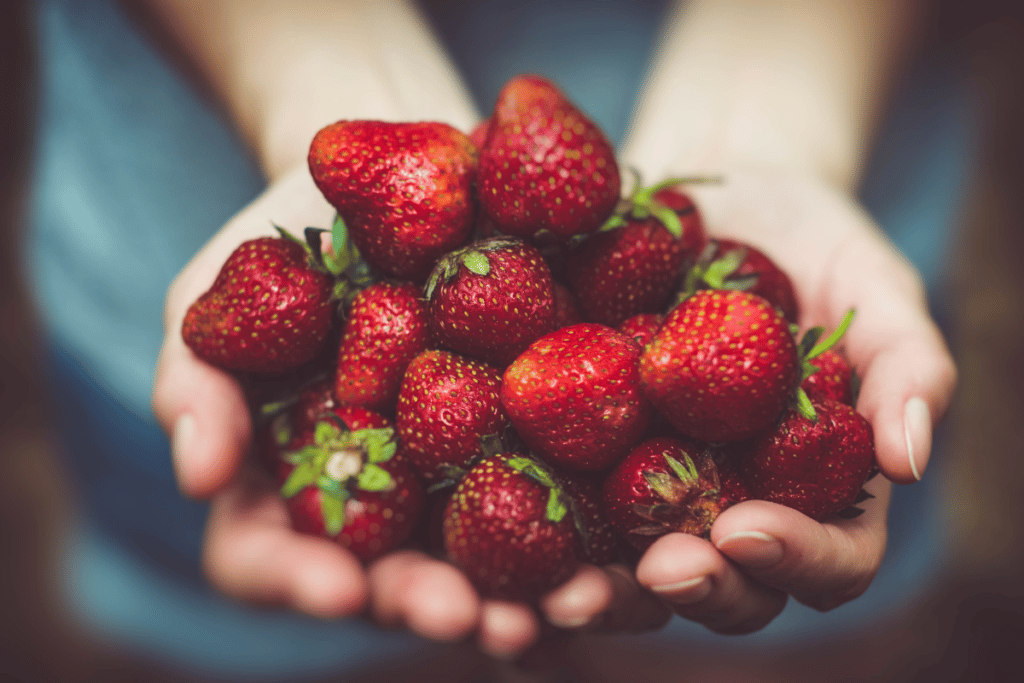
Strawberries are great for runners because they have extremely high water content. They also contain potassium and manganese to help regulate electrolyte levels and avoid cramping.
Strawberries have an astonishing 91% water content, leading them to be super refreshing and hydrating.
Strawberries also serve as a good source of potassium and manganese, two micronutrients that are essential for muscle functioning.
How to prepare it
Same as watermelon and peaches, strawberries are delicious on their own or in a fruit medley.
They can be easily purchased at the store; from there, simply rinse them off and they’re ready to eat!
Salmon
Our first and only fish here! What’s so special about salmon?
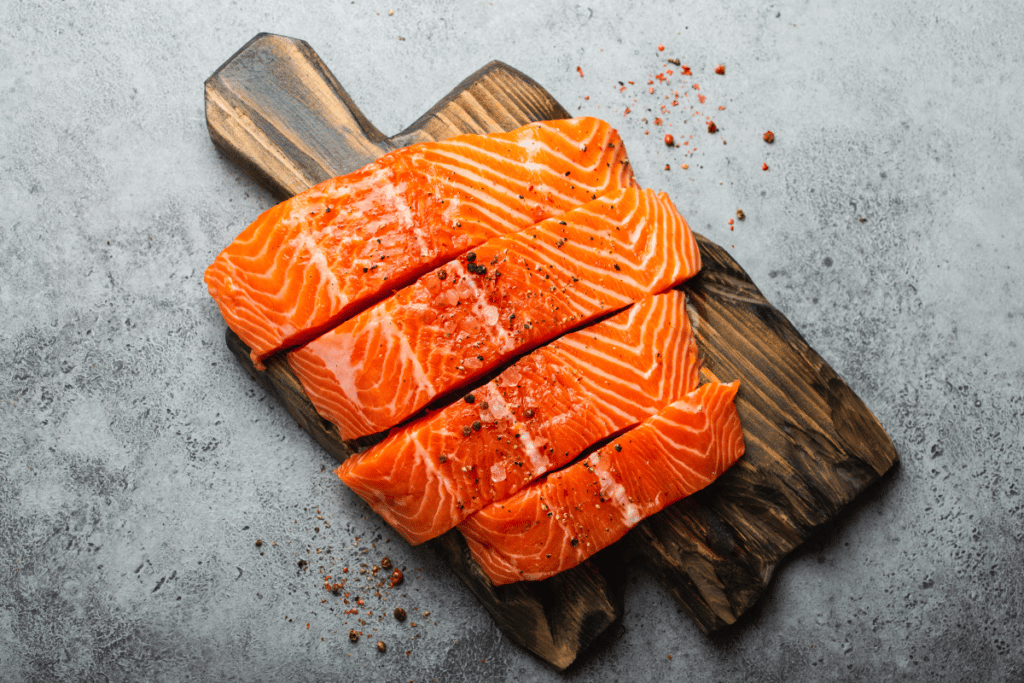
Well, besides its scrumptious taste, salmon could easily be considered a superfood. It has various vitamins and minerals along with a balanced macronutrient profile!
Why it’s great for runners
Runners who love to eat salmon are in luck. They can enjoy a tasty meal while reaping many benefits.
Salmon is great for runners because it is high in protein and omega-3 fatty acids. Salmon also helps to reduce chronic inflammation, in turn boosting recovery for runners to help avoid muscle cramping.
Salmon has a very diverse profile of nutrients: B vitamins, potassium, and selenium. Lucky for us runners, we need all of these to function properly.
Vitamin B6 and B12 are crucial to reducing inflammation in the body. By reducing inflammation, runners can avoid overtraining. This subsequently helps runners avoid painful muscle cramps.
Salmon also has potassium to help balance electrolytes and regulate muscle function.
On top of all this, selenium, protein, and omega-3 fats make salmon a well-rounded, tasty option for dinner.
How to prepare it
Salmon is best either grilled or baked. These cooking methods require little work and will taste great with just minimal seasoning.
Salmon can also be sauteed, and many sushi restaurants often feature salmon in their rolls. Be wary, though: sushi can be loaded with many other ingredients that may not sit well with your stomach.
Oatmeal
I’m slightly biased, but I think oatmeal is one of the best foods in the world. On its own, it’s bland, but there are so many potential combinations waiting to be made!
On top of this, oatmeal has so many health benefits ranging from long-lasting energy to weight loss to anti-cramping properties.
Why it’s great for runners
Oatmeal is often regarded as boring, not necessarily the most exciting start to the day. Perhaps the facts will change that.
Oatmeal is great for runners because the potassium in oatmeal helps to balance electrolyte levels and prevent cramping. Oats are also very filling and have a low glycemic index, so they are great for weight loss and energy.
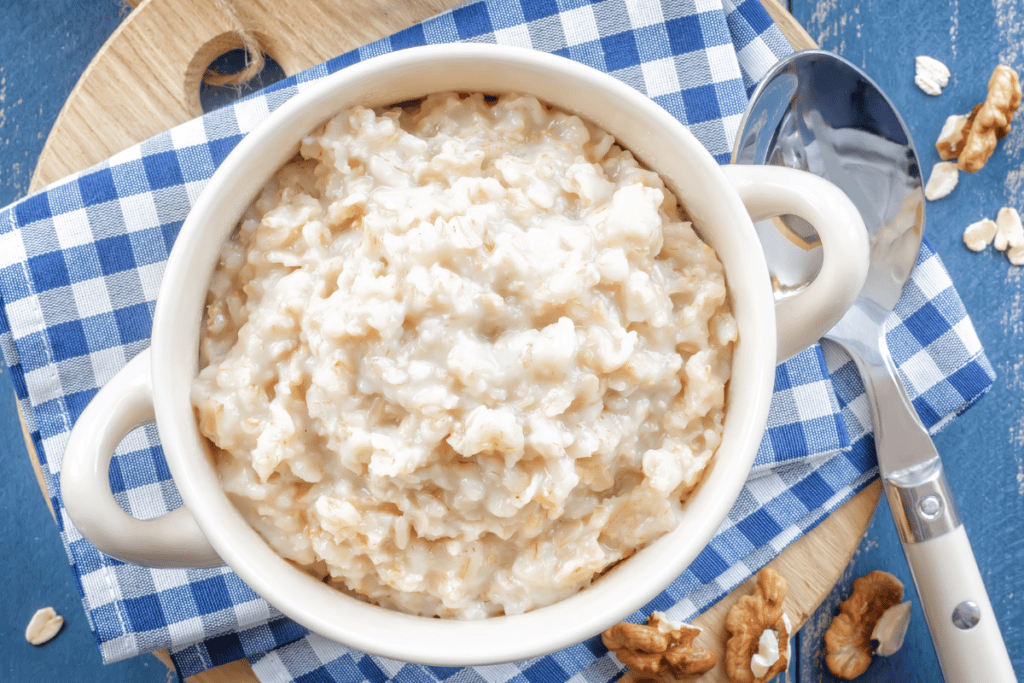
Oatmeal has high levels of potassium, so potassium deficiencies can be easily taken care of (especially when paired with a banana). Potassium is a crucial electrolyte in muscle contractions; too much or too little can cause chaos!
Other health benefits include regulating blood sugar and weight loss. What more could you possibly ask for?
How to prepare it
Oatmeal for breakfast is a staple!
Either on the stove or in the microwave, oats can be cooked in a matter of minutes.
My favorite additions are peanut butter and bananas, although you can get creative and add whatever you like.
I hear savory oats with a poached egg is great as well!
Mixed nuts
Nuts make an easy, portable snack for runners.
On the road or on the trails, nuts can be easily packed away and then later consumed.
I love that mixed nuts provide some variety and convenience all in one, alongside some amazing benefits as well!
Why it’s great for runners
All the hype for running snacks seems to be around carbohydrate-heavy foods. What’s the catch when it comes to mixed nuts?
Mixed nuts are great for runners because they hold adequate amounts of magnesium and calcium. These are both nutrients that must be in balance to prevent muscle cramping while running.
Like many of our other cramp-preventing options, mixed nuts help keep necessary electrolytes and nutrients in balance.
Nuts like almonds, cashews, and pistachios are high in magnesium and calcium. By consuming these nutrients, muscle contractions can be regulated and muscle spasms avoided.
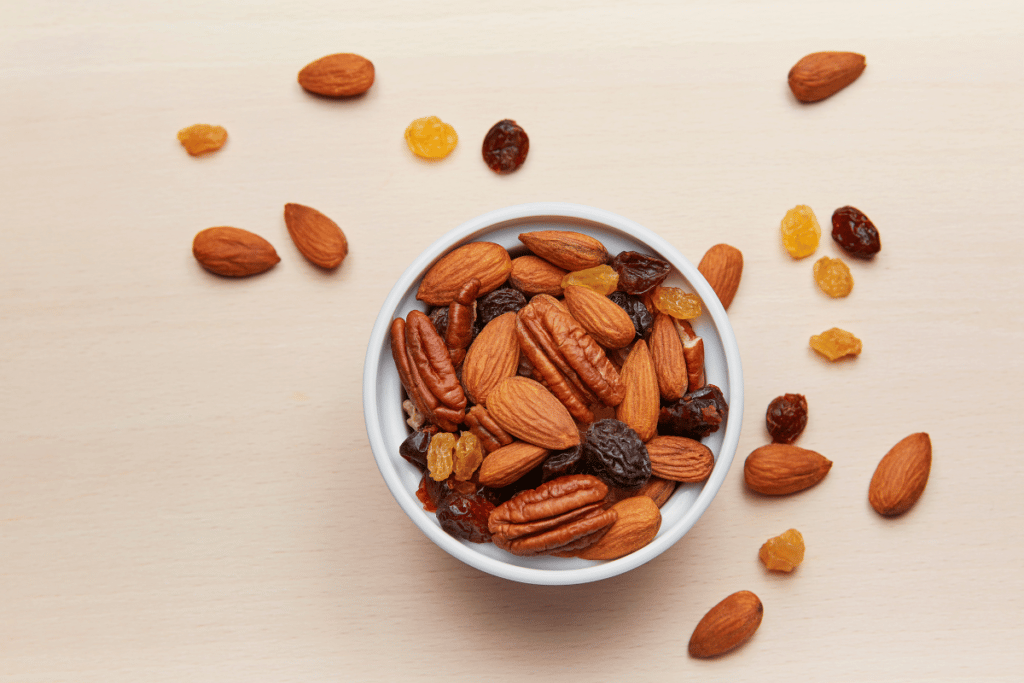
How to prepare it
Mixed nuts are great as a snack. Personally, I find that Kirkland sells a large assortment of mixed nuts that are a great bargain.
I’ll just crack that open and snack on them while I work.
If you don’t care for nuts on their own, toss some nuts into the next salad you make. The nutty flavor and tough texture will be welcomed.
Olives
Fun fact: olives are actually a fruit, not a vegetable! Olives are a delicious staple of Middle Eastern and Mediterranean cuisine.
For how good they taste, it’s amazing they carry such significant health benefits!
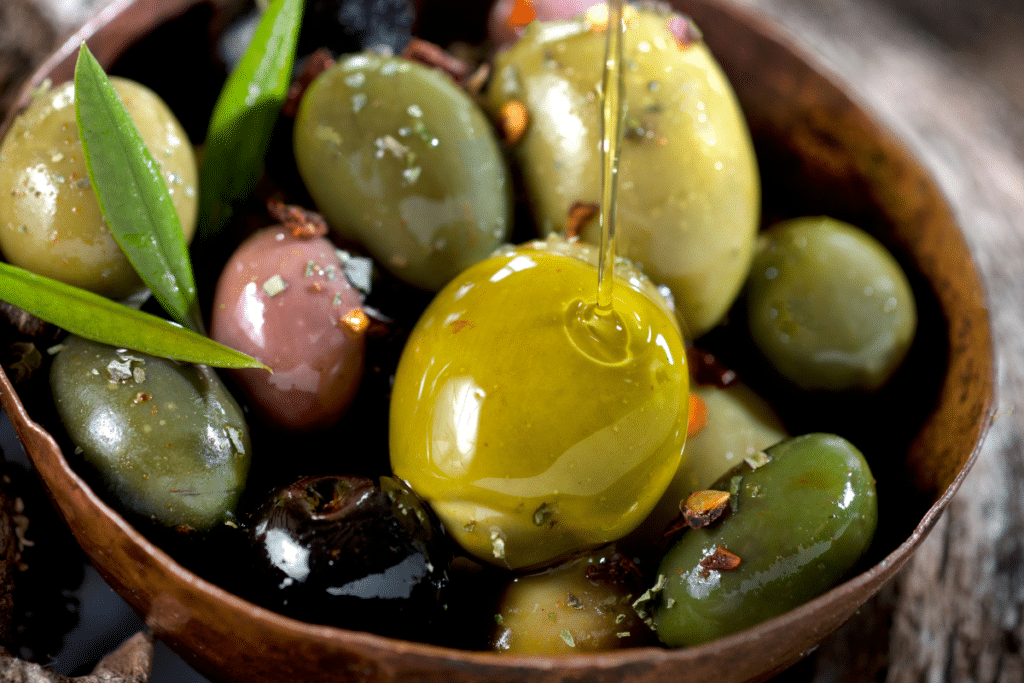
Why it’s great for runners
In terms of muscle cramps, olives are a real game-changer.
Olives are great for runners because they stop muscle cramps when running because of their vinegar and sodium content. Similar to pickles and pickle juice, the vinegar in olives helps to regulate muscle contractions.
In pickles, vinegar provides real benefits by stopping muscle contractions. Acetic acid is able to block neuron receptors to inhibit the muscle, thereby inhibiting cramps as well.
In addition to this, olives have a very high sodium content. During a run, runners are likely to sweat copious amounts and lose lots of sodium. Olives are perfect for replenishing!
How to prepare it
If you can’t tolerate snacking on olives, fear not, for there are plenty of other ways to work them into your diet.
Try adding olives to your omelets to pair with whole eggs. It’ll taste great and be nutritiously fortifying.
Olives are also great in a salad. They add a salty component and a texture contrast that makes for a great addition. You can eat healthily without having to sacrifice enjoyment!
Spinach
Be like Popeye the Sailor! Eat your spinach for big, beefy muscles.
No, seriously. Spinach is great for building muscles; this means runners can eat spinach to boost their recovery significantly.
Why it’s great for runners
Spinach is so much more than a plain, bitter, leafy green.
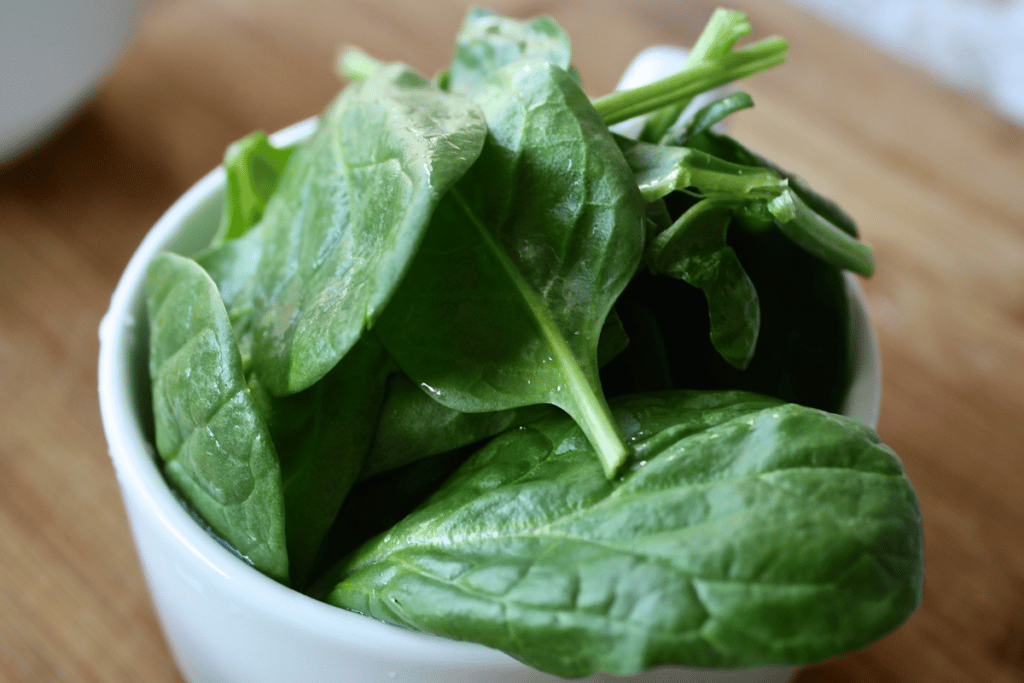
Spinach is great for runners because it provides ecdysterone to runners, a muscle-building hormone. This can facilitate full recovery between runs and helps to avoid cramping.
Ecdysterone was actually added to the steroid list for drug testing in many professional sports, believe it or not. Spinach holds this hormone, although spinach itself isn’t a steroid.
In a study that inspected the effect of ecdysterone on strength performance, researchers found that weightlifters who took ecdysterone had higher increases in both strength gains and muscle mass when compared to the control group.
How does this help runners? Runners need to recover, and a large part of recovery is in muscle rehabilitation. Spinach directly solves that.
How to prepare it
Spinach isn’t necessarily the tastiest food on its own, so I recommend preparing it one of two ways.
First, you can put spinach in a salad or a dish you’re cooking. When paired with other foods and cooked in high-quality oils (think EVOO), spinach is not only healthy but delicious too.
Second, if you want to completely hide the flavor, throw some spinach in your smoothies. With all the other fruits and supplements, you won’t even know it’s in there.
Coconut water
While not exactly a food, coconut water is a fan favorite for staying hydrated and balancing electrolytes.
Because coconuts are scarce and hardly accessible for most runners, coconut water will have to suffice!
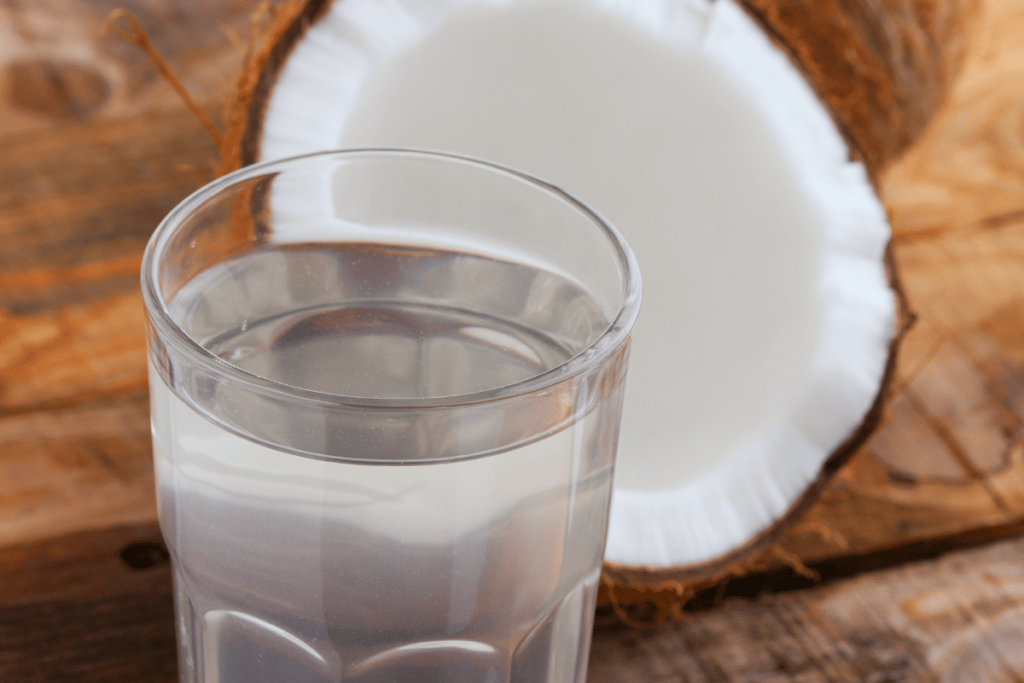
Why it’s great for runners
Even though coconut water is a secondary option to coconuts, it still has massive benefits for runners!
Coconut water is great for runners because it holds lots of natural electrolytes while also helping to hydrate runners.
Drinking coconut water helps runners by balancing their electrolyte levels. One cup of coconut water contains 600mg of potassium, more than a banana or sweet potato!
As the name implies, coconut water is also extremely hydrating. When water consumption becomes crucial, runners should find comfort in knowing they can drink coconut water to stay hydrated.
How to prepare it
Coconut water doesn’t need preparation; it’s nice and easy!
It’s sold in packs at just about any store, so go and pick up a pack of coconut water and start sipping.
Summary – what to eat before running
We’ve covered a LOT of potential options for what to eat before a run but keep in mind that everyone’s body is a little different, and you’ll need to experiment a little to figure out what is best for you.
In general, almost any food is okay to use as a light meal before a run as long as you wait long enough before your run, about two hours or so.
Have fun running!
